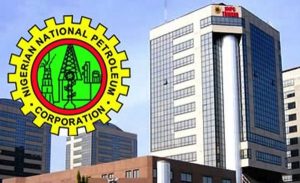
Rehabilitation works will soon commence on the Port Harcourt refinery in Rivers state as the Nigerian National Petroleum Corporation (NNPC) has signed a contract to the effect with an Italian engineering company, Tecnimont SpA.
The contract was signed on Tuesday with the managing director of Port Harcourt refinery company (PHRC), Ahmed Dikko, signing for the refinery, while Davide Pellizola, signed for the contractor, Tecnimont SpA.
It will be recalled that the Federal Government had approved the sum of $1.5 billion for the rehabilitation of the Port Harcourt refinery.
The Minister of State for Petroleum Resources, Timipre Sylva, made this known to State House correspondents at the end of the Federal Executive Council (FEC) meeting at the Presidential Villa, Abuja, on Wednesday, 17th March, 2021.
Sylva said the Ministry of Petroleum Resources had presented a proposal to the council presided over by President Muhammadu Buhari to rehabilitate the refinery.
The minister announced that the rehabilitation of the refinery will commence in three phases, adding that the first phase is to be completed in 18 months, which will take the refinery to a production of 90 percent of its nameplate capacity.
Sylva noted that the second phase is to be completed in 24 months and all the final stage will be completed in 44 months and consultations are approved.
On his part, the group chief executive officer of Maire Tecnimont, Pierroberto Folgiero, noted in a press statement that the company is eager and committed to delivering the project.
He boasted that the company has a track record of success in the sub-saharan African market and is willing to extend its sucess story to Nigeria.
“With this great result we confirm the soundness of our business strategy on geography diversification, as one of its key elements is to grow and assist our clients in their revamping initiatives, leveraging on our technological know-how to ensure more efficient and environmentally better performing processes and products. It represents a testament of our technological DNA, as we are strongly increasing our focus on initiatives for the modernization of the refining sector, such as these strategic rehabilitation works.”
“Moreover, we enhance our footprint in Nigeria and in Sub-Saharan Africa, a market with excellent downstream prospects given its demographics and the necessity to unlock greater added value from the transformation of natural resources,” he said.
The planned rehabilitation work has generated a lot of controversies and reactions with many questioning the decision of the government to spend such huge amount on the project.


